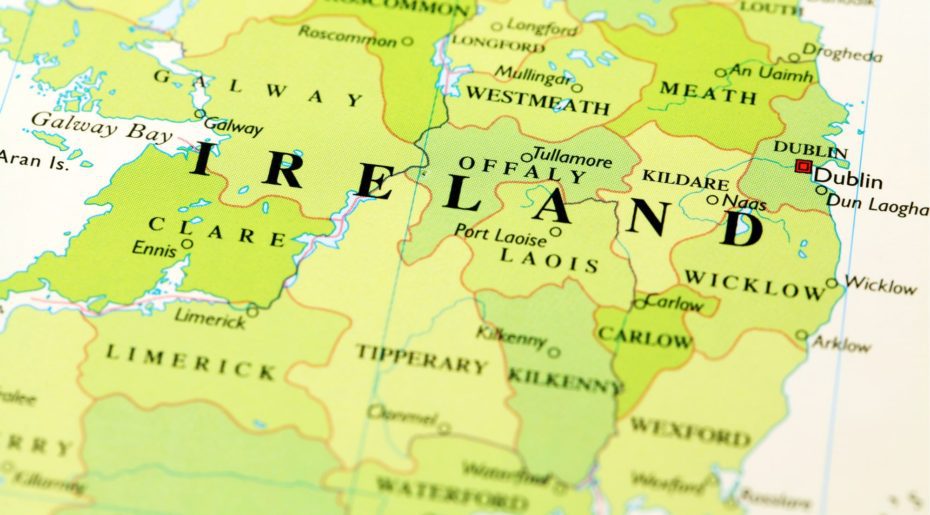In recent days, Boris Johnson’s 4,000 word thesis on post-Brexit Britain appeared in the Daily Telegraph. It is notable that Mr. Johnson didn’t seem to see the higher education sector as playing a role in making Britain ‘great’. His views seemed to be summed up thus: “Our vocational training is often superb – but still not inspirational, and we have yet to find a way of persuading middle-class kids that they might be just as well off getting a skill as a degree.” But the opinion piece is also notable in that it didn’t have a single word about the island of Ireland, which perhaps reflects the UK Foreign Secretary’s views concerning the stated European Commission priority of addressing the border issue as well as our interconnectedness on so many levels, including trade.
On the border
Brexit poses huge challenges for Ireland. There is the obvious question of the 499km border, where there are over 2.2m vehicle crossings every month and where up to 30,000 people work or study on the other side of the border to which they live. Unlike Boris Johnson, Theresa May does seem to realise the significance of the challenge and in her Florence speech on Friday, stressed that she did not want any form of physical infrastructure forming a kind of border wall.
But there is also the question of trade. We export €18bn in services and almost €16bn in goods annually to the UK while we import €11bn in services and €18bn in goods from you. In the agrifood sector alone, the UK imports over €5bn of Irish exports each year, while we import about €4bn from UK producers.
There is a close relationship in higher education and research. Ireland and the UK share a common quality assurance and peer-review culture and there is a long history of co-operation between universities and higher education and research organisations on these islands. About 12,000 full time students in UK universities (including about 2,000 in Northern Ireland) have Republic of Ireland home addresses while there are over 2,300 UK students studying full time in Ireland. According to HEFCE, there are over 2,300 Irish staff working in UK Universities. Since Brexit, we are anecdotally aware of greater interest from UK based staff of vacancies in Irish institutions. There are over 900 links between Irish and UK research projects under the EU Horizon 2020 programme.
Looking to the future
There’s an acceptance that Brexit will happen, and that poses us with real and pressing questions about what the best future relationship can look like. How can we maintain – strengthen even – the close historic relationship in education and research? Unfortunately, answers aren’t immediately springing into existence but a good starting point is a common recognition across the UK and Ireland that cross-border (real and virtual) collaboration is hugely valuable.
Free movement of staff and students is something from which the Republic’s universities benefit as well as the UK’s. And cross-border flows within the island of Ireland for educational purposes are a key part of supporting a peaceful and prosperous relationship between north and south. That said, Ireland is already seeing benefits resulting from Brexit with an upsurge in international students and staff interest. Partnerships are also developing between UK and Irish institutions in the hope that this might maintain an EU foothold for universities.
The uncertainty being felt in the UK is mirrored in the EU. But, unlike the rather febrile atmosphere of last summer, Brexit no longer dominates EU debates in a way that it did. People are moving on. Brexit barely featured in the German federal election campaign. The acceptance that Britain has chosen to distance itself from its European neighbours, including Ireland, is real. For Ireland, we are determined to continue to play a positive role in the European Union but we also need to see properly addressed the land border and our significant trade with the UK.
Clarity in uncertain times
Many organisations on this side of the Irish Sea have debated the possible outcomes of Brexit on higher education and research. There have been papers published and conferences held by amongst others, the Higher Education Authority, Science Foundation Ireland, the Royal Irish Academy, the British Irish Chamber of Commerce. The Government here has highlighted the challenges but is also emphasising possible opportunities.
The lack of clarity needs to be addressed. For an Irish student completing second level education in 2019 or afterwards, how will they be treated in a post Brexit Britain if they apply to one of your universities? What will be the future position of Irish (and other EU) staff and researchers in the UK? Will the UK remain party to various European Research programmes and areas of collaboration?
There are positive ideas being suggested from here – Joint Professorships between the UK and Ireland and the establishment of a UK-Ireland Joint PhD Scheme. Developing a North South Education Research Centre on this island could also be transformative.
Equally, though, Brexit provides an opportunity for us to attract UK academics to come and work in an open environment that is part of the EU and Ireland will certainly be marketing itself as an English speaking, highly educated and welcoming island at the heart of Europe in attracting international students and staff. If Britain withdraws from the Erasmus programme, for example, Ireland will likely feature to a much greater extent for continental students wishing to improve their English language skills.
From where I sit, we’ll keep trying to make the most of a bad situation and maintain relationships where we can. There’s a lot to fight for, and Boris Johnson’s neglect aside, we hope that the importance of the UK-Ireland relationship – in higher education as in other areas – can be maintained.













Perhaps it is time for Ireland to increase its links with the continental EU rather than having an over focus on UK as your article is an example of.
The good news is that there’s a framework for continuing the close working in the Common Travel Area (CTA) DEXEU notes in its position paper that the CTA has its basis in reciprocal legislation passed after Ireland left the Commonwealth in 1949: ‘The Ireland Act 1949 states that Ireland “is not a foreign country for the purposes of any law in force in any part of the United Kingdom”. The Irish Government also legislated in 1949 to ensure that British citizens in Ireland enjoy similar rights and privileges to those enjoyed by Irish citizens in the UK.’ They note that… Read more »